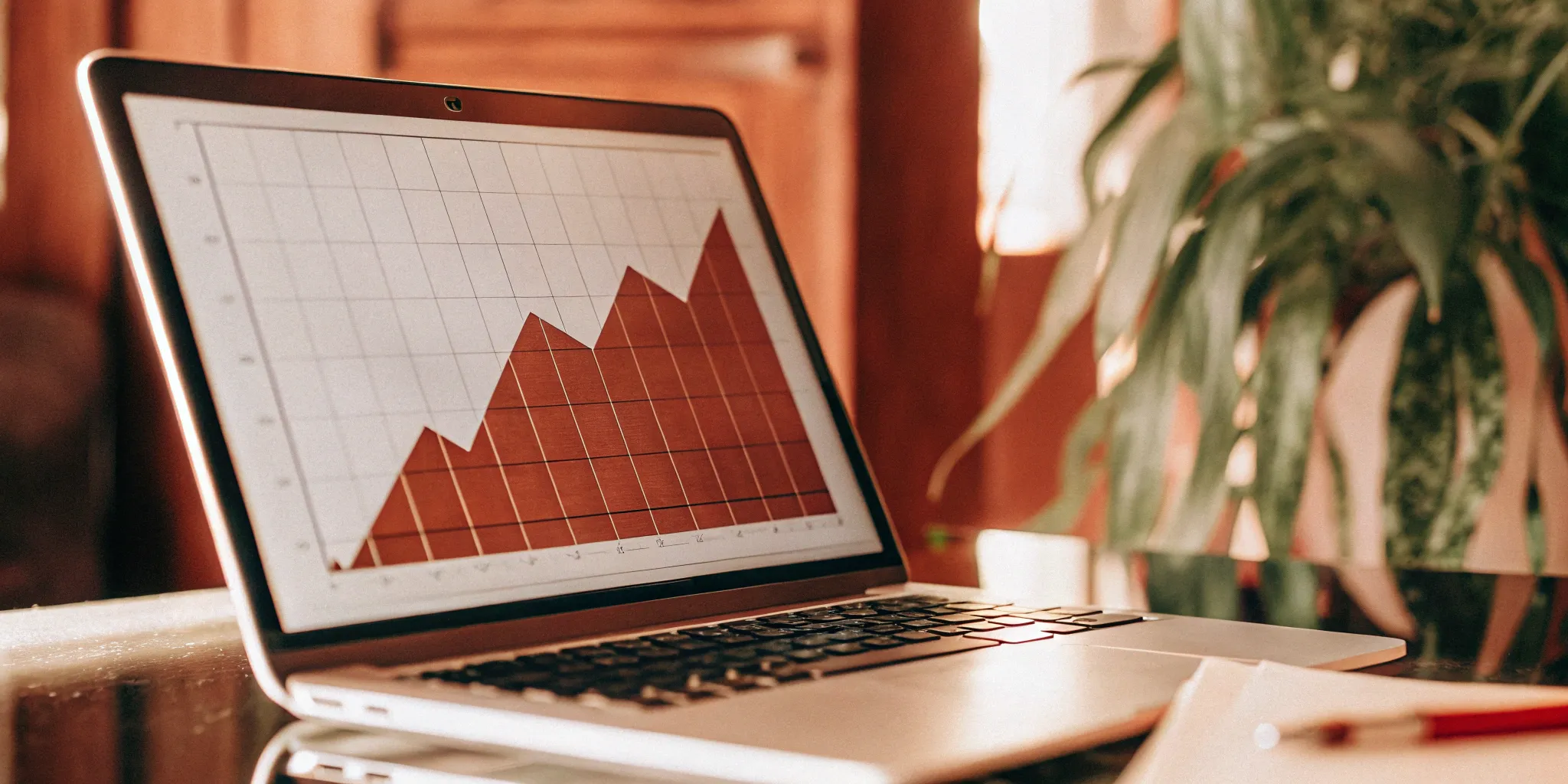Ever feel like the markets are moving too fast to keep up? Like you’re constantly playing catch-up, juggling research, analysis, and execution all at once? A trading assistant can be your secret weapon, providing the support you need to navigate the complexities of the financial world. Whether you’re a seasoned trader or just starting out, a skilled trading assistant can free up your time, enhance your risk management, and even provide valuable market insights. In this comprehensive guide, we’ll explore everything you need to know about trading assistants, from their key responsibilities and essential skills to the costs involved and where to find the perfect fit. We’ll also delve into the transformative role of technology in trading assistance, exploring how AI-powered tools and automated systems are reshaping the trading landscape. Finally, we’ll touch on the crucial legal and ethical considerations that every trader and trading assistant should keep in mind.
Key Takeaways
- A skilled trading assistant can free up your time and enhance your trading. Look for candidates who possess strong analytical and communication skills, and a proven understanding of financial markets. This allows you to focus on higher-level strategy and crucial trading decisions.
- Technology is transforming how we trade. AI-powered tools and automated systems offer valuable advantages, including faster execution, increased accuracy, and consistent adherence to trading strategies. Explore available platforms to find the best fit for your needs.
- Understand the costs and regulations before hiring a trading assistant. Consider salary expectations, experience levels, and any additional fees. Prioritize ethical conduct, confidentiality, and compliance with financial regulations when establishing a working relationship.
What is a Trading Assistant?
A trading assistant is like an apprentice for the financial world. They work closely with a more experienced trader, learning the ropes of buying and selling financial products for clients, managing risk, and providing general support. Think of them as a junior trader gaining practical experience and building their skills. This hands-on training prepares them for more responsibility and eventually, perhaps, managing their own portfolio. A trading assistant’s role is dynamic, demanding, and offers a valuable entry point into the world of finance. They’re essential for helping traders stay organized, informed, and focused on making smart decisions for their clients. Similar to how a trading assistant supports a trader, FN Capital’s AI-powered platform supports investors of all levels, automating complex trading strategies and removing emotional bias.
Key Responsibilities
A trading assistant’s daily tasks can vary, but often include conducting market research, monitoring trades, and preparing reports. They might also manage client communications, schedule meetings, and handle administrative duties. Finding the right fit is crucial. Look for candidates with strong analytical skills, attention to detail, and a genuine interest in finance. Effective communication is key for a productive working relationship. Just as a trader carefully selects their assistant, FN Capital clients choose their preferred AI-powered trading script, aligning their investment goals with a proven strategy.
Types of Trading Assistants
Trading assistants can specialize in different areas, such as equities, fixed income, or forex. Some work directly for individual traders, while others support teams within larger financial institutions. Many aspire to become funded traders, where a firm provides the capital for them to trade. This offers significant opportunities but also comes with its own set of challenges. Whether you’re working with a trading assistant or using an automated platform like FN Capital, understanding your investment goals and risk tolerance is paramount. FN Capital offers a range of AI-powered solutions designed for various investor profiles, from retail investors to institutional partners.
Essential Skills and Qualifications for Trading Assistants
Looking to hire a trading assistant? Knowing the essential skills and qualifications will help you find the perfect fit. A skilled trading assistant can significantly impact your trading performance, so understanding what to look for is crucial.
Educational Background
While a formal degree isn’t always required, a background in finance, economics, or a related field can be beneficial. Look for candidates who demonstrate a commitment to continuous learning and staying updated on market trends. Relevant training courses from registered training organizations (RTOs) and relevant licenses can also give candidates an edge.
Technical Skills
Technical proficiency is key for a trading assistant. Essential skills include expertise with tools like the Bloomberg Terminal, advanced Excel skills, and programming languages like Python or R. A strong understanding of quantitative analysis, financial modeling, and market research is also important. Ensure your potential assistant is well-versed in relevant financial regulations.
Soft Skills
Beyond technical expertise, soft skills are equally important for a successful trading assistant. Look for candidates with strong attention to detail, resilience in the face of market fluctuations, and excellent communication skills. The ability to problem-solve, make sound decisions under pressure, and work effectively in a team are also highly valued traits. A dependable and trustworthy assistant can contribute significantly to a smooth and efficient trading operation.
Benefits of Hiring a Trading Assistant
A skilled trading assistant can significantly impact your trading performance, offering support that frees you to focus on high-level strategy and crucial decisions. Let’s explore the key advantages:
Improve Efficiency and Time Management
As a trader, your time is your most valuable asset. A trading assistant can handle time-consuming tasks, such as market research, data entry, and chart analysis, allowing you to dedicate more time to developing trading strategies, identifying opportunities, and managing your portfolio. Think of it as delegating the groundwork so you can concentrate on the big picture. Finding the right fit is crucial, so carefully evaluate potential candidates based on their skills and experience, ensuring they align with your specific needs, as advised in this article on virtual assistants. Clear communication is also essential for a productive working relationship.
Enhance Risk Management
Managing risk is paramount in trading. A trading assistant can play a vital role in implementing and monitoring your risk management plan. They can track positions, set alerts, and ensure you stay within your defined risk parameters. This helps you avoid emotional decisions and maintain discipline, especially crucial when facing the pressures of meeting performance metrics, a common challenge for funded traders. A dedicated assistant can provide an extra layer of oversight, protecting your capital and contributing to long-term success.
Access Market Insights and Analysis
Staying informed about market trends and news is essential for making informed trading decisions. A trading assistant can provide valuable support by monitoring news feeds, analyzing market data, and identifying potential trading opportunities. They can use tools and resources, including AI-powered platforms, to gather and filter information, presenting you with concise summaries and actionable insights. This can significantly expand your market awareness and help you capitalize on opportunities you might otherwise miss. Some traders even use AI prompts to streamline this process, as detailed in this article on using ChatGPT for stock trading. By leveraging a trading assistant’s research capabilities, you can make more informed decisions and refine your trading strategies.
How Much Does a Trading Assistant Cost?
So, you’re considering bringing on a trading assistant. Smart move! But before you start your search, it’s important to understand the costs. Like any skilled professional, a trading assistant’s compensation depends on several factors. Let’s break down the typical expenses you can expect.
Salary Ranges and Fee Structures
Trading assistant salaries depend heavily on experience, location, and the role’s specific demands. For entry-level positions in Australia, you might find talented individuals starting around $55,000 annually. As experience and skills grow, so does the salary, often exceeding $75,000 per year for senior assistants. This information from Randstad provides a helpful starting point for understanding the Australian market.
In the UK, the average base salary for a Trading Desk Assistant is around £23,795, with total compensation packages often reaching £26,810. Glassdoor’s data offers a solid benchmark for UK-based assistants.
In the US, the average salary for a Trading Assistant is around $150,115 annually. However, this number can change. Similar roles at large firms like Morgan Stanley average closer to $125,031, according to salary information on Glassdoor. This difference highlights the importance of researching salary expectations within specific companies and niches.
Factors Affecting Cost
Beyond location and experience, several other factors influence a trading assistant’s cost. Specialized skills, like software proficiency or a deep understanding of particular markets, can command higher rates. A proven track record also plays a significant role. Assistants with a history of delivering strong returns are often in higher demand, impacting their fees.
The job market itself also matters. A quick search on LinkedIn reveals a wide range of opportunities, with salaries from $40,000 to well over $100,000. This broad spectrum reflects the diverse roles and responsibilities within the field. Finally, your chosen arrangement—full-time employee, part-time contractor, or a trading assistant service—will significantly impact your overall costs. Each option has its own pros and cons, so carefully consider your needs and budget to make the best choice.
Where to Find Trading Assistant Services
Finding the right trading assistant requires knowing where to look. Here are a few avenues to explore:
Job Boards and Professional Platforms
Sites like LinkedIn offer a wide range of job postings, including those for trading assistants. A quick search on LinkedIn can reveal numerous opportunities across various locations and companies. While many listings may use broader terms like “Trader,” filtering by location (like Chicago or New York) can help narrow your search. Keep in mind that companies like TransMarket Group, Akuna Capital, and Geneva Trading frequently have openings in this area.
Financial Services Firms
It’s no surprise that financial services firms are a primary source for trading assistant positions. These firms often have established training programs and offer opportunities for career growth. Consider exploring the websites of firms specializing in trading or investment management, particularly in major financial hubs like New York City.
Freelance Marketplaces
If you’re looking for more flexible arrangements, freelance marketplaces can be a great resource. Sites like Upwork and Fiverr host a global pool of talent, allowing you to find trading assistants with specific skill sets and experience levels. The Trader Chick offers helpful advice on using virtual assistants for trading support, emphasizing the importance of clear communication and a thorough evaluation of candidates’ skills. Remember to carefully vet potential freelancers and establish clear expectations for the working relationship.
Evaluate and Choose the Right Trading Assistant
Finding the right trading assistant is like finding a reliable business partner. It’s a crucial decision that can significantly impact your trading performance. Here’s what to look for:

Assess Experience and Track Record
A solid track record speaks volumes. Look for candidates with proven experience in the financial markets, ideally in a role related to your trading style. The Trader Chick emphasizes the importance of evaluating candidates based on skills and experience relevant to your specific needs. Don’t hesitate to ask for references or examples of their past work. A competent assistant should be able to demonstrate their understanding of market dynamics, technical analysis, and risk management principles.
Compatibility with Your Trading Style
Your trading assistant should complement your strengths and offset your weaknesses. If you’re a day trader, you’ll need someone who can keep up with the fast-paced market. If you’re a long-term investor, look for someone patient and detail-oriented. The Trader Chick points out that compatibility is key. Discuss your strategies and goals upfront to ensure they align with the assistant’s expertise and working style. A good fit will create a more productive partnership.
Communication Skills and Availability
Clear and timely communication is paramount in trading. You need an assistant who understands your instructions, provides concise updates, and responds quickly to market changes. The Trader Chick highlights the importance of effective communication and availability. Establish clear communication channels and expectations from the start. Discuss their preferred methods, response times, and availability during market hours. A reliable assistant should be proactive in keeping you informed and readily available to address any urgent matters.
The Role of Technology in Trading Assistance
Technology has reshaped the trading landscape, offering powerful tools and automated systems that can significantly enhance a trader’s capabilities. From AI-driven insights to algorithmic execution, understanding how these technologies work is crucial for anyone looking to maximize their trading potential.
AI-Powered Trading Tools
Artificial intelligence is no longer a futuristic concept in trading—it’s here, and it’s transforming how we analyze markets and make decisions. AI excels at processing massive datasets, something that would take a human trader an impractical amount of time. These machine learning algorithms can identify subtle patterns and correlations within market data, uncovering insights that might be missed by traditional analysis. This allows traders to make more informed, data-driven decisions. Even popular retail platforms like eToro and Robinhood now incorporate AI-powered features to assist everyday investors with market analysis and risk assessment. This increased access to sophisticated technology is empowering traders at all levels.
Benefits of Automated Trading Systems
Automated trading systems, often powered by AI, offer several key advantages. Speed and accuracy are paramount in today’s fast-moving markets, and automated systems excel in both. They can execute trades in milliseconds, reacting to market changes far faster than any human. This speed minimizes slippage and ensures that trades are executed at the most favorable prices. Beyond speed, automated systems bring discipline and consistency to trading strategies. By removing emotional biases, these systems adhere strictly to predefined rules, avoiding impulsive decisions. This consistent execution is particularly valuable in volatile market conditions. Finally, automation frees up traders’ time, allowing them to focus on higher-level strategy and portfolio management.
Popular Trading Assistant Platforms and Services
Several platforms and services can significantly enhance a trading assistant’s workflow. Whether your assistant focuses on technical analysis, automated trading, or market research, the right tools are essential. Here’s a look at some popular options:
MetaTrader 4/5
MetaTrader 4 (MT4) and MetaTrader 5 (MT5) are arguably the most popular retail trading platforms. MT4, known for its user-friendly design, is an excellent starting point for trading assistants new to the field. Its automated trading capabilities, using Expert Advisors (EAs), can automate repetitive tasks. MT5, while also supporting EAs, offers more advanced features, appealing to experienced assistants handling complex strategies. Both platforms boast a large community where users share custom indicators and scripts.
NinjaTrader
NinjaTrader stands out with its advanced charting, market analysis, and backtesting features. It’s a favorite among futures and forex trading assistants due to its highly customizable interface. The platform also supports the development of automated trading strategies, allowing assistants to create and refine their own algorithms. NinjaTrader’s educational resources are a bonus, providing continuous learning opportunities.
TradingView
TradingView is a web-based platform popular for its charting tools and social networking aspect. Trading assistants can use TradingView to share ideas and learn from other traders. It supports a wide range of asset classes, from stocks and forex to cryptocurrencies. Real-time data and alerts keep assistants informed about market movements, while the platform’s user-friendly interface makes it accessible to all skill levels.
eSignal
eSignal is a professional-grade platform known for its real-time data feeds and in-depth technical analysis tools. Trading assistants who rely heavily on technical analysis will appreciate eSignal’s customizable indicators and studies. The platform also supports automated trading and provides access to various asset classes.
Bloomberg Terminal
The Bloomberg Terminal is a premium platform widely used by institutional traders and analysts. It provides real-time market data, news, and sophisticated analytics. While its comprehensive features and data coverage are invaluable, the high subscription cost makes it more suitable for assistants working within larger firms or those managing substantial portfolios. The Bloomberg Terminal offers advanced charting and portfolio management tools.
Legal and Ethical Considerations in Trading Assistance
This section isn’t about legal advice, but rather a general discussion of important legal and ethical considerations. Always consult with a qualified legal professional for advice tailored to your specific situation.
Comply with Financial Regulations
Trading activities, whether you’re managing your own portfolio or working with a trading assistant, are subject to various financial regulations. These rules aim to protect market integrity and investor interests, covering areas like reporting trades, disclosing financial information, and ensuring fair practices. Staying informed about these regulations is crucial, as they can evolve with the introduction of new financial products and technologies. Resources like the SEC website or the CFTC website offer valuable information to help you stay current. Traders and firms that fail to keep up risk penalties and damage to their reputation.
Confidentiality and Data Protection
Ethical conduct is fundamental to maintaining trust in financial markets. When working with a trading assistant, confidentiality and data protection are especially critical. You’re sharing sensitive financial information, trading strategies, and possibly even access to your accounts. Choosing an assistant who understands and respects these ethical boundaries is non-negotiable. Protecting against insider trading, fraud, and conflicts of interest is paramount. A strong code of ethics within the financial industry helps maintain market stability and protect investors. Clear communication and written agreements about data handling practices are essential from the beginning of your working relationship.
Related Articles
- FN CAPITAL FAST AI LIVE – FN Capital
- FN CAPITAL FAST AI LIVE – FN Capital
- FN CAPITAL FAST AI LIVE – FN Capital
- FN CAPITAL FAST AI LIVE – FN Capital
- FN CAPITAL FAST AI LIVE – FN Capital
Frequently Asked Questions
Is a trading assistant the right choice for me?
A trading assistant can be a valuable asset whether you’re a seasoned trader or just starting. If you find yourself overwhelmed by market research, risk management, or administrative tasks, a trading assistant can free up your time to focus on your core trading strategies. Consider your trading style, available budget, and specific needs to determine if a trading assistant is the right fit. If the costs seem prohibitive or you’re primarily interested in automated trading, exploring AI-powered platforms like FN Capital might be a more suitable alternative.
What’s the difference between a trading assistant and an automated trading system?
A trading assistant provides personalized support, handling tasks like market research, trade execution, and administrative duties. They adapt to your specific instructions and trading style. Automated trading systems, on the other hand, execute trades based on pre-programmed algorithms, removing emotional bias and operating 24/7. While a trading assistant offers flexibility and personalized support, automated systems provide speed, consistency, and around-the-clock operation. FN Capital, for example, offers an AI-powered automated trading solution, eliminating the need for manual intervention.
How can I ensure the security of my financial information when working with a trading assistant or using an automated platform?
When working with a trading assistant, establish clear confidentiality agreements and data handling procedures from the outset. Verify their credentials and seek references to ensure trustworthiness. For automated platforms, prioritize those with robust security measures, such as encryption and two-factor authentication. Reputable platforms like FN Capital prioritize client fund security and operate within established regulatory frameworks. Always research and choose platforms with a proven track record and transparent security practices.
What are the key skills to look for when hiring a trading assistant?
Essential skills for a trading assistant include a strong understanding of financial markets, technical analysis expertise, proficiency in trading platforms (like MetaTrader or NinjaTrader), and excellent communication skills. Depending on your needs, specialized knowledge in areas like options trading or algorithmic strategies might also be beneficial. Look for candidates who are adaptable, detail-oriented, and able to work effectively under pressure.
What are the alternatives to hiring a trading assistant if I’m on a limited budget?
If hiring a full-time trading assistant isn’t feasible, consider part-time assistants, freelance contractors, or virtual assistants specializing in trading support. These options offer greater flexibility and can be more cost-effective. Alternatively, explore AI-powered trading platforms like FN Capital, which automate many of the tasks traditionally handled by a trading assistant, providing a scalable and potentially more affordable solution. Focus on tools and resources that align with your budget and trading goals.





